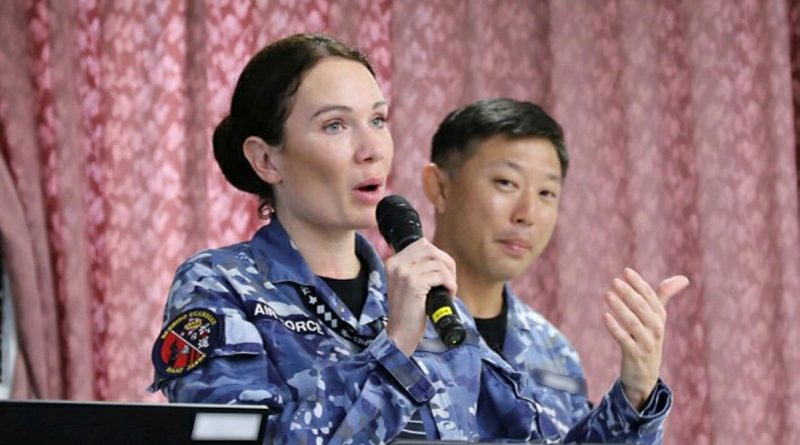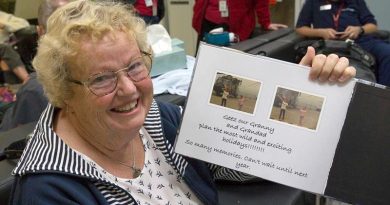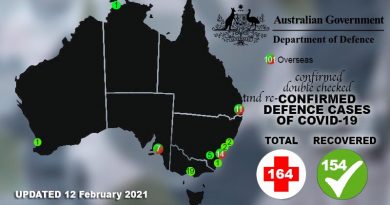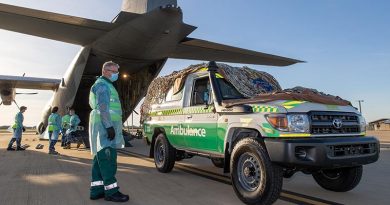A focus on gender, peace and security

A re-examination of gender, peace and security within Air Combat Group has resulted in gender advisers deploying more frequently on exercises in dual-hatted roles to enhance Air Force’s contribution to gender, peace and security (GPS).
CAPTION: Flight Lieutenant Rosemary Callery speaking during a gender, peace and security networking event on Exercise Bushido Guardian at Komatsu Air Base in Japan. Story by Flight Lieutenant Claire Campbell. Photo from the Japanese Self-Defence Force.
Recently, 75 Squadron participated in multiple bilateral exercises, including Alon, Bushido Guardian and Elang Ausindo, where gender advisers (GENADs) and personnel in gender focal point (GFP) roles were responsible for gender analyses and liaison with host countries to promote gender, peace and security objectives.
Activities included a networking event during Exercise Bushido Guardian organised by the 75 Squadron gender adviser, Flight Lieutenant Rosemary Callery.
“During my career I’ve deployed to the Middle East and parts of rural Africa. I’ve seen first-hand the consequences of not involving women in peacebuilding and security processes which is what interested me in the GENAD role,” Flight Lieutenant Callery said.
“Increasing awareness to the big GPS issues such as the prevention of human trafficking, forced prostitution and genital mutilation is something I’m passionate about.”
The implementation of GPS throughout Air Combat Group aims to create a network of education, awareness, inclusion and support for all personnel.
Gender focal points also visited local schools and engaged with the community in Indonesia.
Group Captain Peter Davies, Deputy Commander Air Combat Group, said having GPS experts with an appreciation of the deployed environment assisted Air Force’s interaction with locals.
“While operational effects will be generated during the Joint Operations Command planning process, Air Combat Group’s team will guide planners to ensure the impact of our deployment and engagement with local communities is positive for all,” Group Captain Davies said.
“Ideally, GPS application will become business as usual and the GENAD will purely focus on relevant aspects of Air Combat Group’s contribution to mission success.”
GPS is underpinned by four pillars – participation, protection, prevention, and relief and recovery. According to the United Nations, Peace Agreements are 35 per cent more likely to last 15 years or more when women participate in the peacemaking decisions. Critically, Air Combat Group’s implementation plan includes men as equal contributors to GPS outcomes.
As a result of these networking efforts, partner nations will be invited to attend Australia’s gender adviser course in Canberra in 2024 to continue to build on Defence’s implementation of UN Security Council Resolution 1325.
Flight Lieutenant Callery said the concept of gender in military operations was also relevant during humanitarian aid and disaster relief and high-risk weather season activities.
“It is important we work together with our local communities or partner nations, depending on the scenario, to improve how we implement [the concept] on operations,” she said.
“We will no doubt be working together more in the future.”
.
.

.
.





